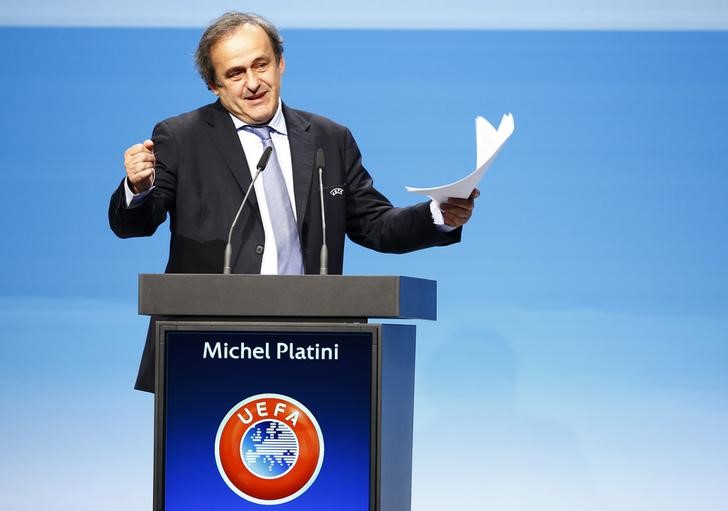By Mike Collett
VIENNA (Reuters) - UEFA president Michel Platini has welcomed English proposals to make changes to their home grown player rule and said it was a problem that needed to be addressed throughout Europe.
Greg Dyke, the chairman of the English FA, issued plans on Monday which he said would help more "top quality" English players break through from the junior ranks.
He wants to see the maximum number of non-home grown players permitted in a club's first team squad of 25 reduced from 17 to 13, with the reduction phased in over four years from 2016.
Another area confirmed for change, following discussions with the Home Office, concerns existing work permit regulations "to ensure only the most talented non-EU players meet new criteria".
Platini told reporters after UEFA's annual congress ended on Tuesday that he welcomed Dyke's proposals, explaining: "It is not only a problem in England, it is a problem in a lot of countries and I agree with him.
"I don't know if England's failure in the Champions League and the Europa League this season has anything to do with it, it is hard to analyse why teams lose, perhaps it is just a cyclical thing for this season.
"But it is a problem some countries are facing."
Dyke said in a statement on Monday that in 2014, just 23 English players were playing Champions League football.
"That compares with 78 Spanish players, 55 from Germany and even 51 from Brazil -- and the numbers will only get worse.
"If we want to maintain a national side capable of competing against the world's best, we need change," he said.
Dyke told reporters at the congress he was depressed after reading a newspaper column by former England player Rio Ferdinand.
"I thought it was in some ways quite depressing," he said. "He was saying (Chelsea manager) Jose Mourinho is virtually admitting he is not going to play the kids anyway. Why have an academy then?
"It's not fair on the kids. It was always tough for kids to get through but it seems unfair now, if they can't get through the system why bother?
"We are open to discussions but this is a set of ideas which we think will work."

Dyke's proposals come out of the commission he set up two years ago to look at ways of improving the chances of young English talent to succeed at the highest level.